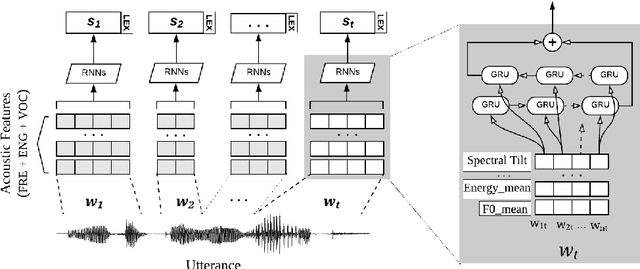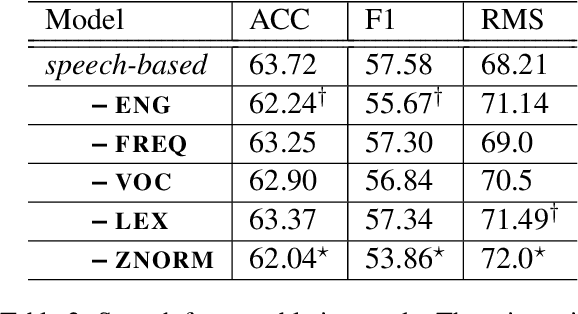Modeling Acoustic-Prosodic Cues for Word Importance Prediction in Spoken Dialogues
Paper and Code
Mar 28, 2019



Prosodic cues in conversational speech aid listeners in discerning a message. We investigate whether acoustic cues in spoken dialogue can be used to identify the importance of individual words to the meaning of a conversation turn. Individuals who are Deaf and Hard of Hearing often rely on real-time captions in live meetings. Word error rate, a traditional metric for evaluating automatic speech recognition, fails to capture that some words are more important for a system to transcribe correctly than others. We present and evaluate neural architectures that use acoustic features for 3-class word importance prediction. Our model performs competitively against state-of-the-art text-based word-importance prediction models, and it demonstrates particular benefits when operating on imperfect ASR output.
 Add to Chrome
Add to Chrome Add to Firefox
Add to Firefox Add to Edge
Add to Edge